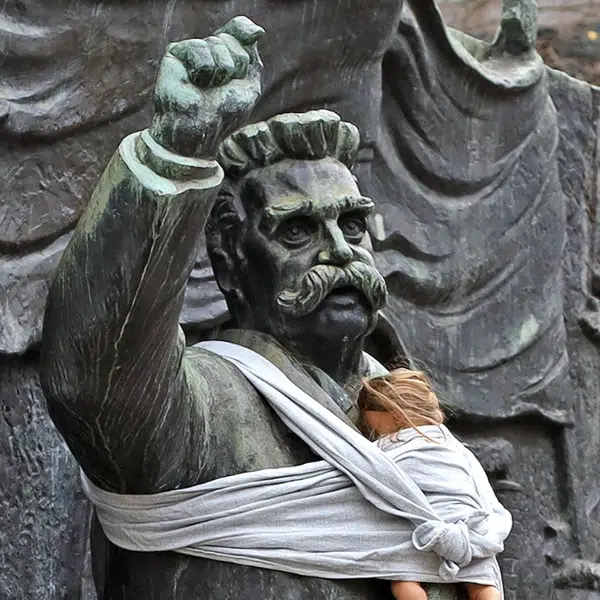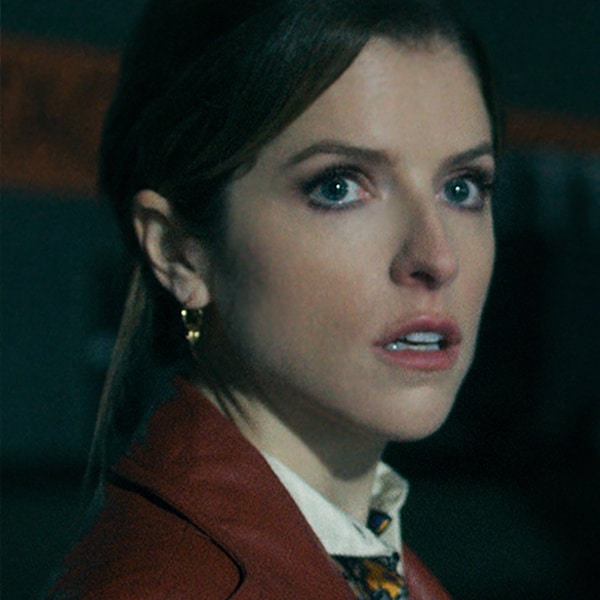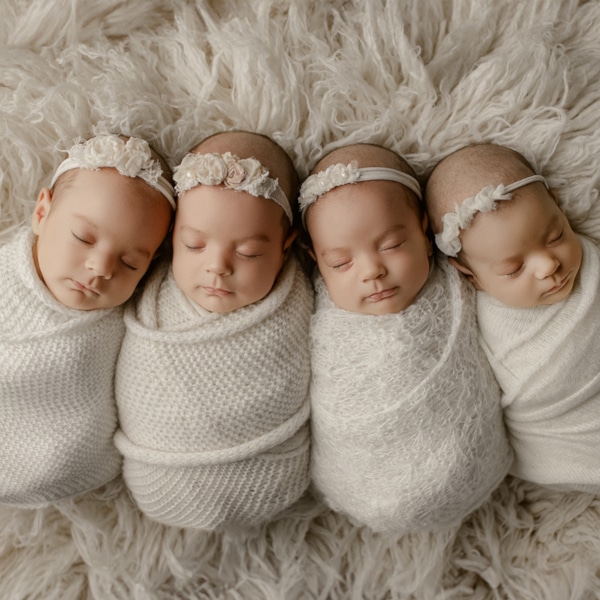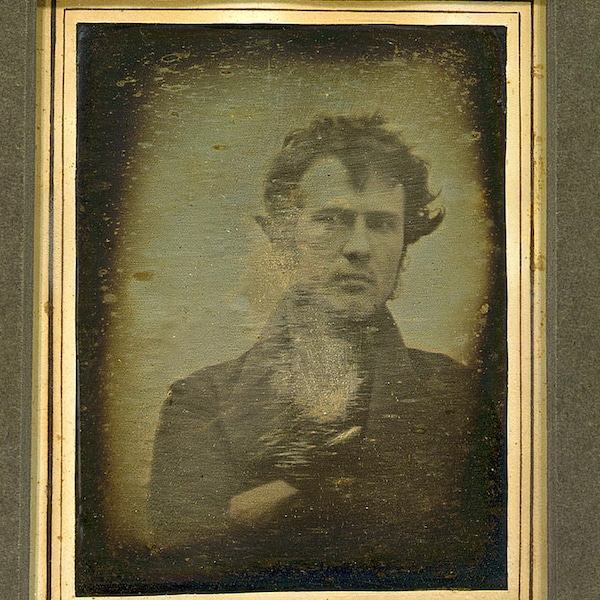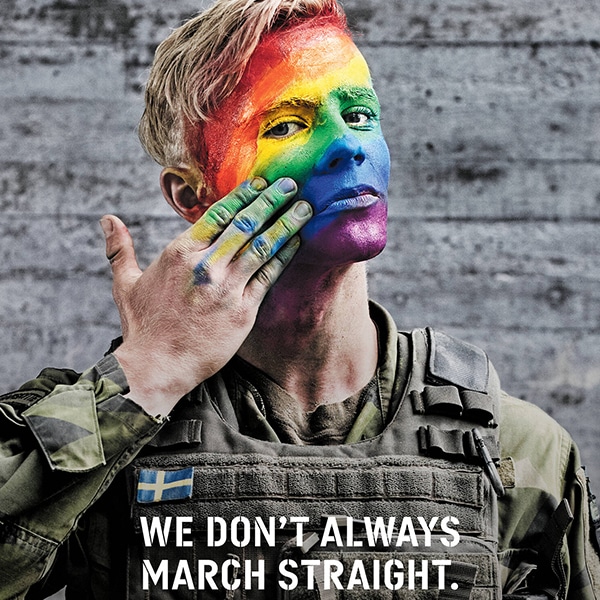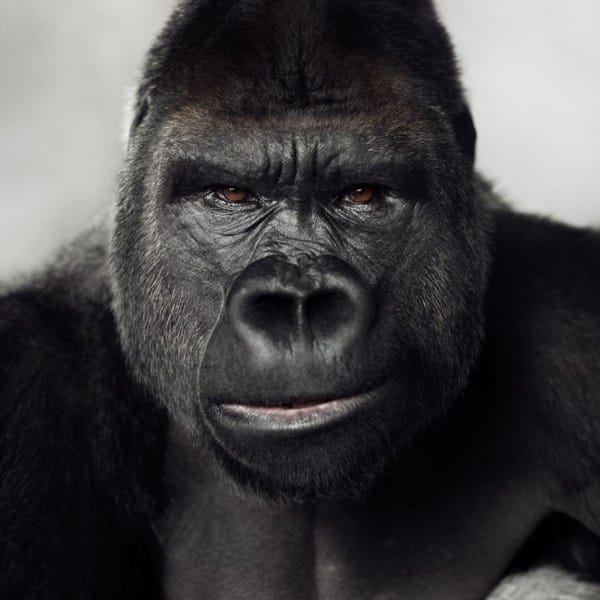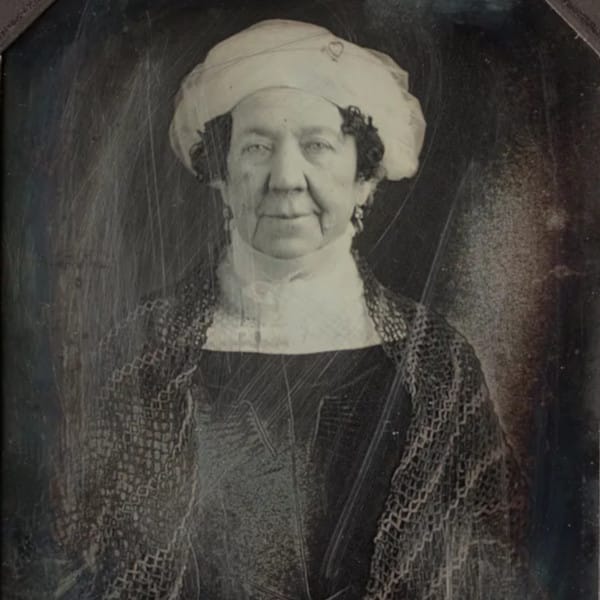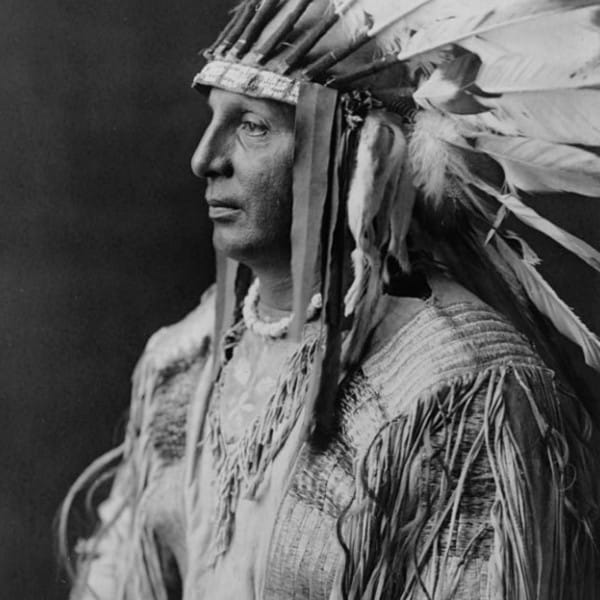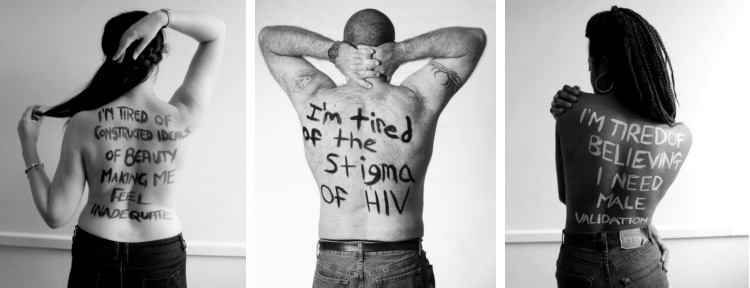
Today, body art has taken on an empowering role in the realm of activist art. Detailing everything from hidden insecurities to invisible illnesses, this medium has the power to communicate individuals' issues in a deeply personal yet straightforward way. For their series, I'm Tired, socially conscious students Paula Akpan and Harriet Evans employ this approach to explore the ways in which average people face everyday inequality and discrimination.
Shot in black and white, this project features photographs of individuals who are “tired” of the comments, criticism, and unfair treatment that they receive in their daily lives. The dissatisfied subjects share their stories through text written on their backs, enabling them to retain their anonymity while still emphasizing their vulnerability through intimate portraits.
Most of the matters detailed deal with racial, sexual, and gender discrimination, though some revolve around mental and physical health, religion, and politics. Since Akpan and Evans created the I'm Tired project in 2015, it has brought ample attention to the problems plaguing modern society. Today, it continues to shed light on “the lasting impact of everyday micro-aggressions, assumptions, and stereotypes” with every bold and beautiful portrait.
Each portrait featured in I'm Tired, a black and white photography project, presents issues of real-life discrimination through body art.
The I'm Tired Project: Instagram | Facebook | Twitter
h/t: [Design You Trust]
All images via I'm Tired.
Related Articles:
Makeup Artist Raises Mental Health Awareness With New #InsideOutChallenge
Black Model Recreates Fashion Photo Shoots for Powerful Statement About Beauty in Diversity
Empowering Nature Tattoos Designed with Uplifting Concentration of Colored Energy











































































